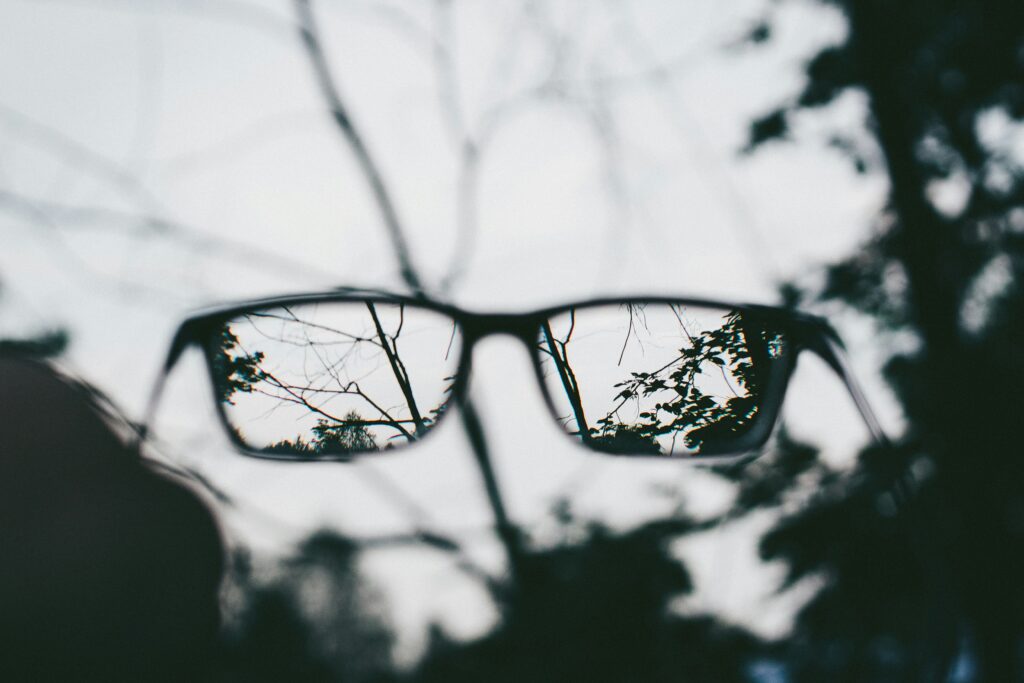How often should you change your glasses?
In general, new glasses should be purchased every two years. If your vision changes, you may need to purchase new glasses sooner, such as a year or two after your current glasses were purchased.
How Do I Know If I Need New Eyeglasses?
You may have a refractive error if you experience difficulty reading, working on a computer, or seeing at distances, which requires a prescription for glasses. It may also be time to see an optometrist for a thorough eye examination if you are experiencing headaches, itchy eyes, flashes of light, or cannot recall when you last had an eye exam.
There is a possibility that your vision is changing and you need to purchase reading glasses over-the-counter. Your optometrist may recommend specific sunglasses as a means of protecting your vision during bright daylight hours to prevent sun damage to your eyes. Your vision may be affected by an underlying condition that requires monitoring and a new prescription.
If you notice changes in your vision, purchasing over-the-counter glasses should not be the first step. There are several reasons to get glasses, however this decision should be based on an eye doctor’s recommendation. You should know if there are underlying reasons your eyes are changing, even if you find a pair that improves your visual acuity.
Which types of glasses are used for which activities?
-
Standard Eyeglasses: A plastic or glass lens is held at a certain distance from the eye by a frame in order to correct vision. Using these glasses, refractive errors such as nearsightedness, farsightedness, and astigmatism can be corrected with lenses of varying shapes and thicknesses. It is also possible to wear glasses to improve the visual acuity of people who suffer from cataracts or glaucoma. A businessman is seated at an office desk, staring closely at the laptop screen and wearing his glasses, showing signs of workplace vision problems.
-
A single vision lens can be used for a variety of purposes, although one lens may be shaped differently due to differences in prescription between the two eyes. As opposed to multifocal lenses, which are commonly referred to as bifocals and trifocals, multifocals correct both near and far vision problems.
-
The progressive lens functions as if it were a bifocal or trifocal, with a prescription change that does not occur abruptly, but rather gradually from the middle or top of the lens to the bottom, which treats farsightedness.
-
For people who already need glasses, presbyopia may lead them to require bifocals since the condition begins around age 40 and progresses throughout middle and older adulthood. For people with presbyopia who already require glasses, these glasses are designed to correct the condition. Even people with no visual acuity problems may find that they need glasses for close-up tasks such as reading.
-
If you have a visual change greater than +3.00, then you should consult an optometrist for a prescription. However, if you have a visual change greater than +3.00, a prescription will be required.
-
Sunglasses that block ultraviolet (UV) light are recommended if you spend extended periods of time under the sun without eye protection. It is possible to damage your eyesight even if you wear sunglasses that do not block out this type of radiation.
-
Ask your optometrist for recommendations on sunglasses which are 100 percent UV protected if you have any questions. In addition, these glasses are only designed to protect against UV radiation from the sun. Arc welding, tanning beds, and snowfields require different type of eye protection with UV filtering.
-
If you frequently wear glasses, transition lenses may be more convenient for you than prescription sunglasses, which darken in bright light. Many people prefer these lenses instead of prescription sunglasses. The lenses are usually designed to protect against UV rays, however they may darken in bright light indoors, which is inconvenient.
When should I visit my optometrist?
The need for glasses or new glasses should arise if your vision is changing and you are unable to see clearly. This type of condition is often caused by refractive errors like nearsightedness, farsightedness, and astigmatism, which will be diagnosed by your eye doctor and a prescription will be written so that your vision will be improved.
If you haven’t experienced any changes to your vision, there are specific recommendations for how often you should see a physician. These recommendations are based on your age and should be followed. You should also consult an optometrist as soon as possible if you experience a sudden, dramatic change in your vision. In addition to changing your prescription, an optometrist may also write to a specialist if a different condition is responsible for your visual changes.
Depending on your age, you will have your eyes checked at different intervals.
-
It is recommended that babies are examined for the first time at 6 months of age, and then every 6 months until they are two years of age.
-
It is recommended that the child undergoes an eye examination between the ages of three and five.
-
The child should have an eye examination at least once every year between the ages of 6 and 18 years old, including one right before they begin school
-
It is recommended that young adults between the ages of 18 and 39 undergo an eye examination annually, although it may be necessary to undergo an annual examination if their vision changes.
-
At least every two years, adults between 40 and 64 years of age should have their eyes examined.
-
Every year, older adults, starting at 65 years of age, should undergo an eye examination.
As long as your prescription is current, you can get as many glasses as you need as long as you are willing to pay for them. You can also get new glasses if you want a change of frames, if your old frames are out of style, or if your frames break.
How Do You Know If Your Child Needs New Glasses?
Parents may notice a few changes in their child’s behaviors that indicate they require glasses. Children may not know they need glasses since they do not know they should perceive the world differently.
-
Sitting too close to the television
-
Holding a book very close to their face or peering close to their textbooks while studying
-
Losing their place frequently while reading
-
Using a finger to follow along the sentences while reading
-
Squinting at objects
-
Tilting their head
-
Rubbing their eyes
-
Developing a sensitivity to light
-
Excessive tearing
-
Closing one eye to perform tasks better
-
Avoiding activities that specifically require near or far vision
-
Complaining about headaches
-
Complaining about their eyes hurting or feeling tired
-
Getting lower grades
Are new glasses covered by insurance on a regular basis?
Insurance plans vary as far as the specifics of coverage are concerned, but most provide a fixed amount each year for new eyeglasses.
You will be responsible for covering the difference if you choose a pair of eyeglasses or lenses that exceed the range covered by your insurance plan. Most plans cover between £90 and £120 of the cost of new eyeglasses.
For more information regarding the amount of coverage for new eyeglasses provided by your specific vision insurance provider, please contact them directly.
Your glasses can last for many years if you take good care of them
In order to extend the life of your glasses, it is important to take care of them as soon as you purchase them. Here are some tips to ensure they last as long as possible.
-
When your glasses are dry, you should wipe them with a special cloth rather than using another cloth.
-
You should not clean your glasses with paper products.
-
Your glasses should not be cleaned with ammonia, bleach, vinegar, or window cleaner.
-
When cleaning your lenses, do not spit on them.
-
Using warm water and a pea-sized amount of dish detergent, clean your glasses and dry them with a soft cotton cloth.
-
Transport your glasses safely by using a hard-shell case.
-
To prevent scratching, keep your glasses’ lenses facing upward when you place them on a table.
-
When putting on and taking off glasses, ensure that you use both hands to prevent the frame from warping.
-
It is not advisable to leave glasses in a hot car as the plastic may warp.
Having your eyes checked regularly will ensure you have the most up-to-date prescription to improve your vision. Glasses can be a trendy fashion statement regardless of your age and how often you wear them.
















